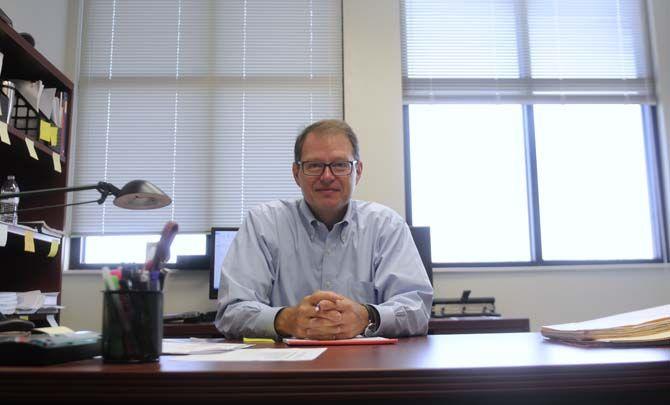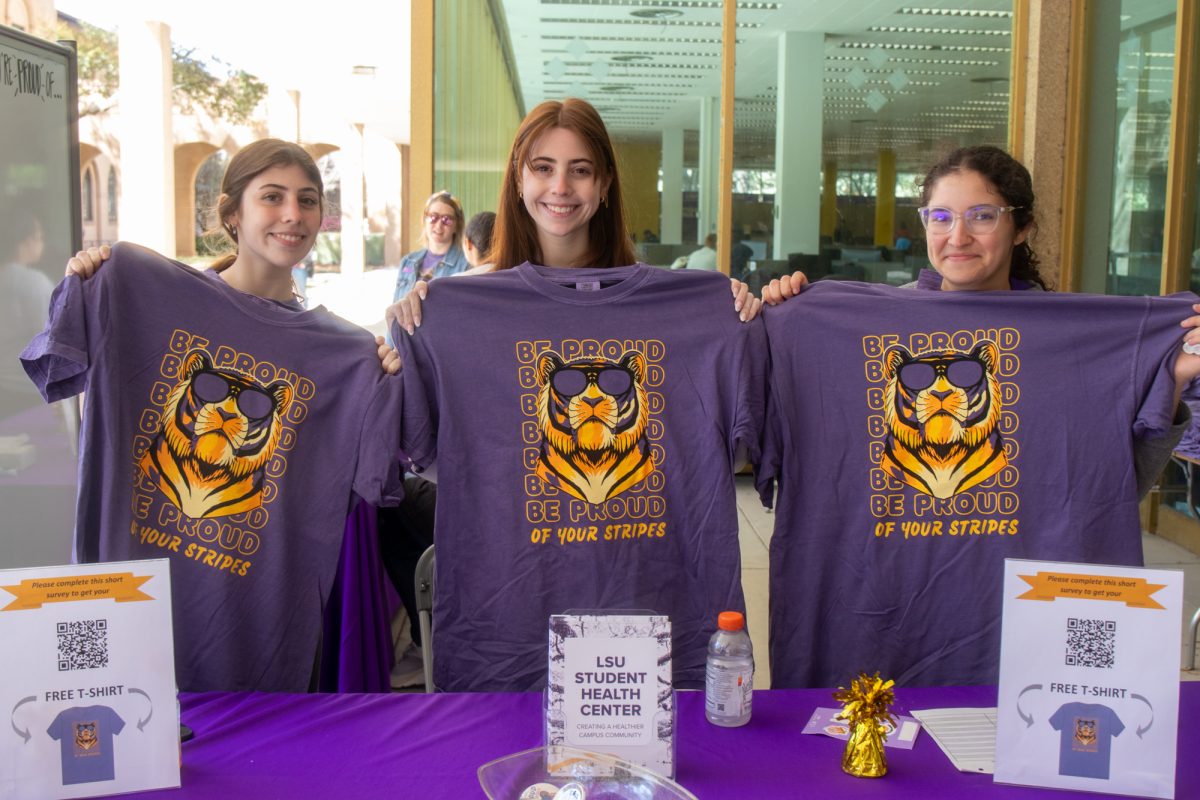The Bella Bowman Foundation, a Baton Rouge organization aimed at supporting pediatric brain cancer research, awarded a $75,000 grant to medical physics professor Wayne Newhauser.
Trey and Kim Bowman created The Bella Bowman Foundation after their daughter lost her life to brain stem necrosis, a rare side effect from the proton radiation she received for brain cancer. The Bowman’s established the foundation to help families of children suffering from brain cancer and to further research and education on radiation necrosis.
Trey Bowman said he discovered Newhauser from an article on Newhauser’s Department of Defense grant to research ways to improve the health outcomes of pediatric cancer survivors.
“It was almost like it was heaven sent when I was reading it,” Trey Bowman said. “We found Dr. Newhauser and he has over 20 years of experience with proton and photon radiation. He is equally as passionate about doing this project. And it just kind of all came together.”
Newhauser, who worked at MD Anderson, said he found the Bowman’s story compelling.
“At first, my reaction was ‘well I don’t know anything about that, but let me look into it,’” Newhauser said. “So I did, I got some literature and read up. It turns out that this radiation necrosis is actually a very similar issue to second cancer. So most of my work had been on trying to reduce the risk of second cancers. But I would say about 90 percent of that is applicable to this radiation necrosis research.”
The relationship between the Bella Bowman Foundation and the Medical Physics program started in 2013 with an initial grant of $22,000. Newhauser completed his first study on possible causes of radiation necrosis in June 2014.
Newhauser has used the grants provided by the Foundation to fund stipends for the graduate students who assist in his research.
“Typically what happens when someone like the Bowmans, reach out to us, we try to match that in some way with some of our internal program funding, I had a couple of grants in this area,” Newhauser said. “We had a lot of stuff in place, and what that meant was for that additional donation that they made they were allowed to get a lot of bang for their buck.”
The LSU Medical Physics program is a joint program with the Mary Bird Perkins Cancer Center in Baton Rouge. The partnership was created to combine the clinical environment of MBPCC with the research and education resources at the University.
Newhauser’s research utilizes the University’s supercomputers to do computer simulations to predict the risks of cancer treatment. Newhauser said computer simulations eliminate many restrictions found in clinical trials like time and patient availability.
“We’ve reduced the length of time of doing one of these studies from 15 to 30 years down to two to three years,” Newhauser said. “We’re actually the only group in the world who’s done complete full body reconstructions for the screening of spinal radiation.”
Trey Bowman said they are optimistic about their continuing partnership with the Medical Physics program and Newhauser’s research.
“If we can change the treatment algorithm favorably for one child and have a positive impact, then we say mission accomplished,” Trey Bowman said.
Newhauser said it is unusual to find a specialized research program like his at a science college instead of a medical school.
“If there are other folks out there who have an interest in this or they’re looking for ways to donate money, or maybe they’re donating money to LSU and they would like to earmark it for a project like this,” Newhauser said. “That’s all entirely possible and they should just pick up the phone and just start talking to people. Thats how these things get started, chance interactions.”
LSU professor receives cancer research grant
September 8, 2014
LSU Medical Physics Program Director Wayne Newhauser is helping produce personal protective equipment for healthcare professionals.
More to Discover










